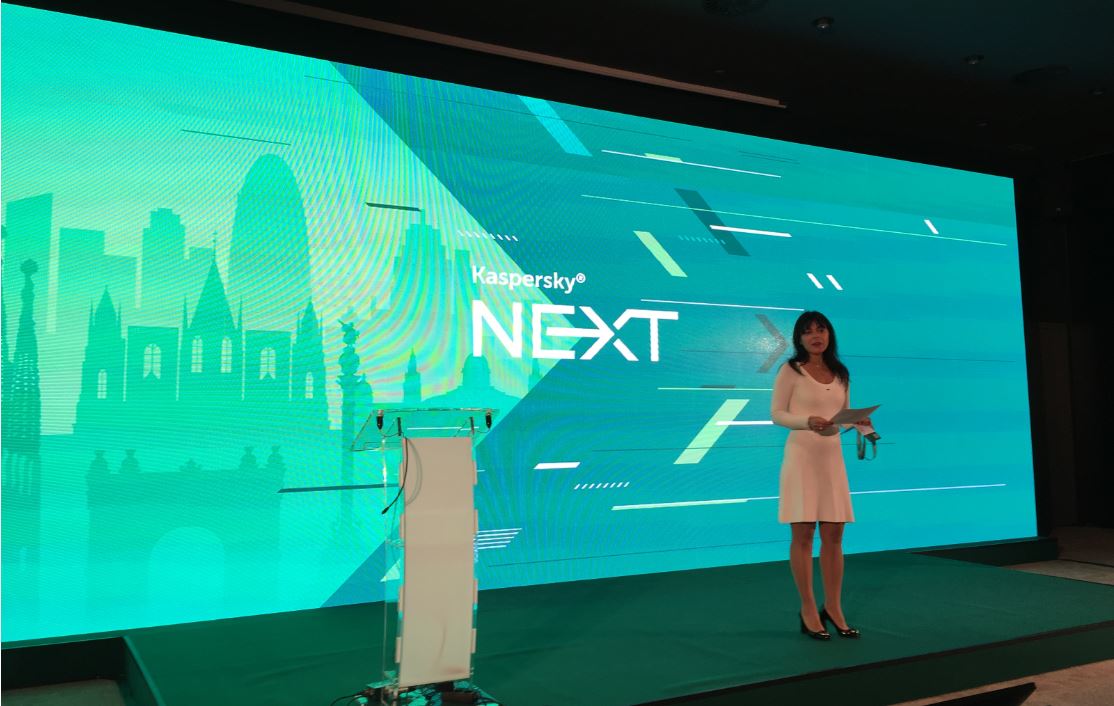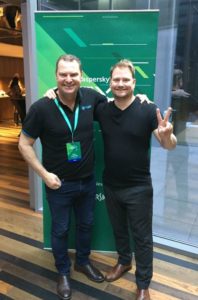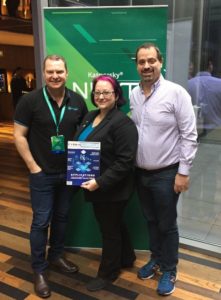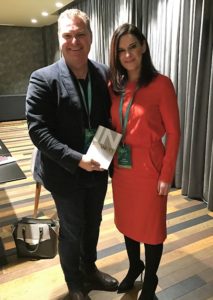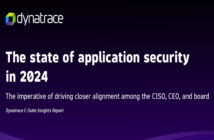The #KLNext conference, held 29-30 October 2018 in Barcelona, Spain, gathered together journalists and experts from around the world to discuss the latest research and future possibilities in the areas of security, industry and technology.
As participants in this year’s event, courtesy of Kaspersky Lab, we took the opportunity to sit down with a number of the Kaspersky Lab European team and their special guest presenters, including Jane Frankland, Eva Galperin, Ian & Nicole Whiting and Laurie Pycroft from Oxford University.
These KLNext Series podcasts present a broad and insightful look at not just Kaspersky Lab, as a cybersecurity company, but also the fast emerging fields and issues within the sector, globally. Thanks for listening;
Interview with Christian Funk, Head of the Global Research and Analysis Team (GReAT) Germany at Kaspersky Lab discussing nation state attack trends and the ever increasing rise in sophistication.
Normally someone who analyses the nitty gritty details of attacks, Christian uses a wide angle lens to look at the bigger picture of Nation State attacks and examines what is unique about Nation State actors; how they differ from ordinary crimeware like banking Trojans and what sets them apart in terms of their arsenal, their approach and their capabilities.
Interview with David Jacoby, IT Security Evangelist with Kaspersky Lab discussing his research into the black market and the availability and price of your personal data. If someone gets hold of your identity, how much is that worth to them? David has researched the value of gaming profiles, social media accounts and other credentials and how it is being bartered on the dark web. David also provides excellent direction on the use of pass-phrases as a better alternative to passwords. For more information on David Jacoby, visit https://www.kaspersky.co.uk/about/team/david-jacoby or follow at @jocobydavid
Interview with Ian and Nicola Whiting, Titania, the CEO and CSO respectively, as well as Mr & Mrs. Ian is a former accredited penetration tester and an innovator in his field, having designed and brought to market the world’s first automated Configuration Analysis tools. Independently verified as 100% accurate, these trusted Titania products help enterprise security professionals in more than 95 countries maintain the most secure networks around the world.
Nicola, an experienced Chief Operations & Strategy Officer with a strong history of working in Cyber Security / Information Security, has led Titania from an ambitious start-up to a multi-million pound, award-winning company – in less than a decade. Nicola is also an advocate for Autism and Women in Cyber, where she provides government level advice on Diversity and is Worcestershire’s Commissioner for the UK Cyber Science & Innovation Audit. For more information visit www.titania.com
The Electronic Frontier Foundation is the leading nonprofit organization defending civil liberties in the digital world. Founded in 1990, EFF champions user privacy, free expression, and innovation through impact litigation, policy analysis, grassroots activism, and technology development. The EFF works to ensure that rights and freedoms are enhanced and protected as the use of technology grows.
This interview with Eva Galperin, Director of Cybersecurity dives into cybersecurity, privacy and security and the future around implants, robotics and Avatars. Prior to 2007, when she came to work for EFF, Eva worked in security and IT in Silicon Valley and earned degrees in Political Science and International Relations from SFSU. Her work is primarily focused on providing privacy and security for vulnerable populations around the world. To that end, she has applied the combination of her political science and technical background to everything from organizing EFF’s Tor Relay Challenge, to writing privacy and security training materials (including Surveillance Self Defense and the Digital First Aid Kit), and publishing research on malware in Syria, Vietnam, Kazakhstan. When she is not collecting new and exotic malware, she practices aerial circus arts and learning new languages.
Interview with Jane Frankland, an award-winning cybersecurity entrepreneur, consultant, speaker and market influencer. Having spent nineteen years in cybersecurity, she has built and sold her own penetration testing firm, and been actively involved in leading industry accreditations, schemes and forums. She is the founder of Cyber Security Capital, the IN Crowdd community, and the IN Security movement. Author of Insecurity: Why a Failure to Attract and Retain Women in Cybersecurity Is Making Us All Less Safe, you can learn more about Jane and her initiatives via http://jane-frankland.com
This interview with Ilijana Vavan, Managing Director, Europe and Alice Collins, Communications and Head of Women in Cyber program discusses the scale of Kaspersky Lab and the company’s support of women in cyber. Ilijana introduces Kaspersky Lab as a global cybersecurity company, founded in 1997, with over 400 million users and 270,000 corporate clients. The company has a comprehensive security portfolio with leading endpoint protection and a number of specialised security solutions and services to fight sophisticated and evolving digital threats.
Interview with Laurie Pycroft, Oxford University with Denis Makrushin & Dmitry Galov of Kaspersky Lab: If you think that cyber threats targeting your body and your mind is something that belongs in the future, or that being able to retain and share your memories forever is a just something from a dystopian television series. Then think again. Connected deep brain stimulation devices already exist to help sufferers of many neurological disorders, and this fundamental technology will eventually enable memory enhancement, implantation and more. Even today, connected medicine is creating an online-ecosystem for monitoring patients, tuning implants, remote diagnostic (telemedicine) or simply for collecting the data for future treatments. But any new pioneering technology, like ‘magic’, has another side – a dark side. In this case, the black magic could allow for the manipulation, control and abuse of your data.
In their collaborative research, Kaspersky Lab and Oxford University researchers examine cyber vulnerabilities of current and the emerging future of implantable things. Implications of memory control and external access creates opportunities for empathy, entertainment and legacy but also for use by law enforcement, abuse by repressive regimes, exploitation and other cyber threats from nation states and criminals, as well as mass manipulation of groups. Importantly, guidelines and regulations around implants and new generation devices with update-able firmware will be needed and not yet observed, there is potential for ‘in the wild’ mass attacks on implant human populations.

